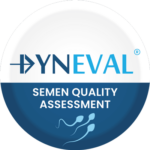Farmers Weekly Awards 2023: Livestock Adviser of the Year finalists
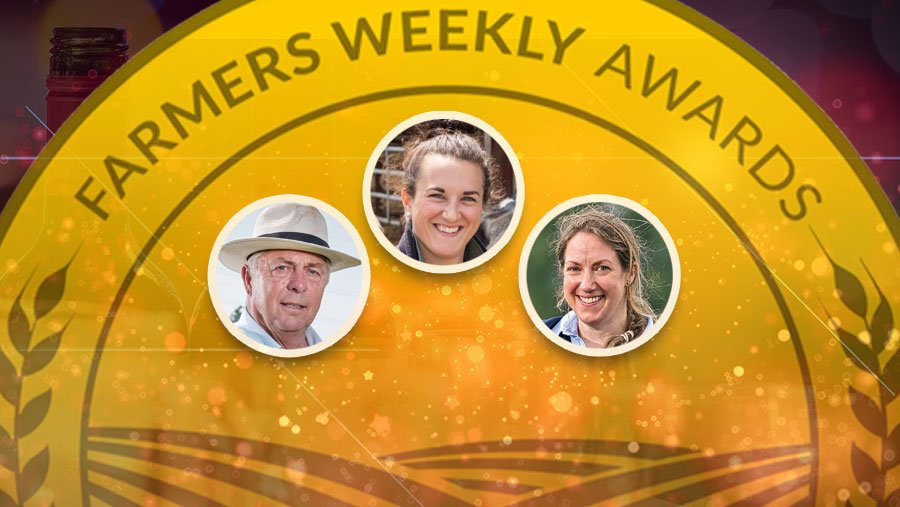
A drive to improve the health of the nation’s dairy herds, enhance sustainability and cut carbon emission was a central theme for all this year’s finalists as they sought to increase the efficiency of milk production.
See also: Farmers Weekly Awards 2023: Grassland Manager of the Year finalists
The finalists:
Georgina Doel
Wyvern Garston Vets, Frome, Somerset
Alan Mason
CRV UK, Cumbria
Sara Pedersen
Farm Dynamics, Cowbridge, Vale of Glamorgan
The judges:
James Daniel
Last year’s winner
David Jones
Farmers Weekly deputy arable editor
Claire White
Senior veterinary adviser for the NFU
Georgina Doel
Wyvern Garston Vets
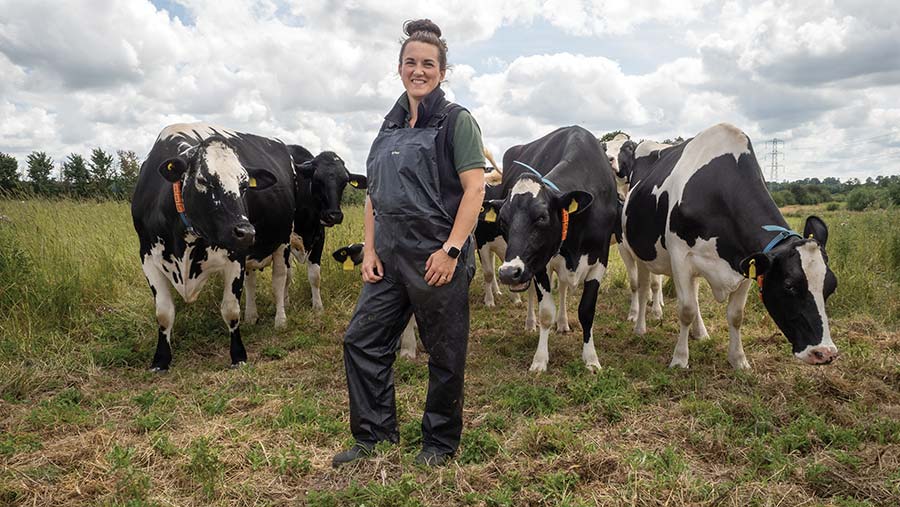
Georginan Doel © Kathy Horniblow
Farm facts
- Martin and Susie Hann, Hann Farming, Rodden Down Farm, Somerset
- 292ha farm with 220 milking Holstein herd
- Cropping: grass, winter wheat and maize
- Average milk yield is 10,000 litres using four robots
Georgina Doel has introduced a programme of scheduled vet visits to keep her dairy and beef clients up to date with all the latest animal health advice from her fiercely independent, Somerset-based vet group.
As a vet in the practice, Georgina developed and launched her proactive service to plug in updates on cattle mobility, youngstock, bull fertility, herd health, antibiotics use and Johne’s control, as well as stay in close contact with her farmer clients.
Wyvern Garston Vets now has 16 dairy farmers in its Proactive Farmers group, which Georgina founded in 2018.
It looks at quarterly mobility scoring, mastitis cell counts and setting up overall farm health plans.
Her particular interest is in youngstock, growth rate monitoring and vaccine strategy, aiming for healthier stock and reducing the age of first calving.
The practice also provides vet services to the nearby Longleat safari park.
“We are looking at the whole process of vet services and to introduce regular visits rather than troubleshooting,” she says.
Technical knowledge
The practice’s farmer clients who have joined up for £120/month have gained from scheduled vet visits and benchmarking their performance against others in the group.
This has led to a dramatic fall in lameness on those farms.
Most clients have improved their youngstock rearing practices, with calves fed increased volumes of milk and vaccinated for respiratory pathogens.
Faster growth is also being seen along with reduced antibiotics use.
Some 10 years ago, vaccine use in youngstock was low on farms, but now is on the rise, especially for the targeting of pneumonia in calves.
“For the youngstock, we are focusing on calf health and are now seeing antibiotics use down, vaccine use up and hygiene levels increasing,” says Georgina.
The focus is now moving to weaned calves, with regular weighings, better nutrition and improved housing. Georgina is also addressing worming and resistance problems through regular worm egg collections.
Environmental credentials
The overall better health of the cows among the vet’s progressive group is also helping with sustainability and reducing carbon emissions by making the herds more productive.
“We are moving towards more sustainable farming with less antibiotics used, more efficient milk production and reducing the age of first calvers,” she says.
On one of the farms, clients Martin and Susie Hann, from Frome, Somerset, have seen the age of first calving come down from 27-28 months to 24 months.
Client relationship
Martin and Susie have been clients since 2011, milking 220 Holsteins through four robots. They have seen big improvements since joining the Proactive Farmers group three years ago.
Georgina has co-ordinated visits to the farm for locomotion and body condition scoring, which has greatly reduced lameness in the herd and allowed a better picture to emerge of transition cow health and overall nutrition.
The youngstock rearing system has been overhauled, the calves are growing strongly and a robust colostrum protocol has been introduced. As a result, antibiotics use has fallen.
“The system has helped prevent problems before they happen, especially in terms of vaccine use,” says Martin and Susie’s son, Ryan.
One of the biggest changes has been the increased vaccination of calves for pneumonia. It is now rare for any animal to have to be treated for this respiratory disease.
What the judges say…
Georgina is adding value for her clients and also across the practice by providing proactive advice to achieve improvements in animal health and performance, alongside the reduction in use of antibiotics.
Georgina Doel summary
The numbers
- 13 years as a vet
- 12 years with Wyvern Garston Vets
- 50 dairy clients in the practice
- 8 vets in the practice, with a total staff of 17
The judges liked
- Makes good ideas happen. Takes suggestions and delivers them back as a value-added service
- Proactive Farmers group has encouraged ideas sharing and provided social and mental health support
- Development of dairy youngstock service for regular calf weighing and early intervention to achieve target age at mating
Alan Mason
CVR UK, Cumbria
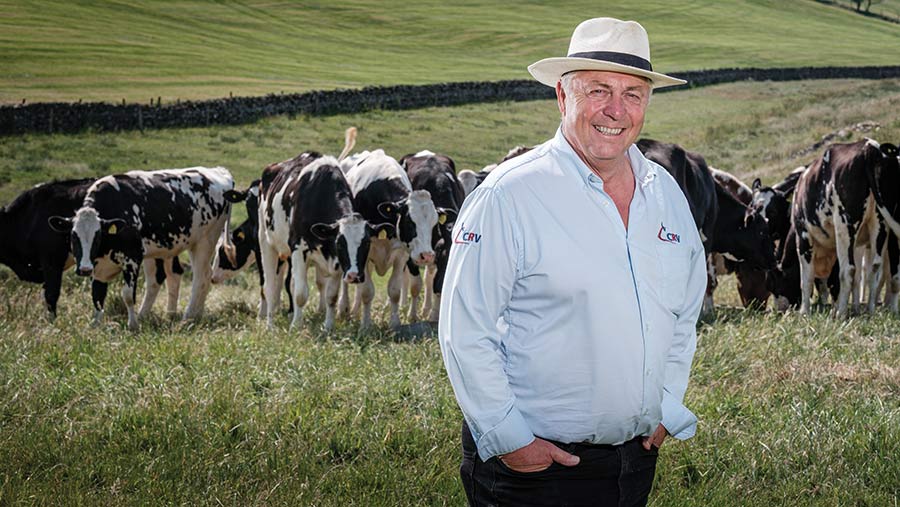
Alan Mason © Jim Varney
Farm facts
- David and Richard Barton, JM Barton & Son, Lupton Hall, Lonsdale, Cumbria
- 200ha farm, all in grass
- 300 milking Holstein herd
- Average milk yield 10,500 litres in herringbone parlour
Alan Mason is helping one Cumbrian dairy farmer make the genetic changes needed to breed a more feed-efficient milking herd to improve sustainability and cut the farm’s carbon footprint.
He is using the latest genetic methods to breed Holstein cows with a better size and strength – that means moving away from tall, lean cows towards medium-sized cattle with a more robust “front end”.
As a breeding sales adviser for Dutch dairy genetics co-operative CRV, Alan is using genomic testing for heifers, the company’s Ovalert heat and health detection collars, and computer-based mating to match cows to the best bulls.
The aim is to follow Dutch dairy farmers’ progress in focusing on sustainable systems and longevity for the milking herd to give some of the highest lifetime milk production levels in the world.
“If we can breed the right type of cow, then we can improve feed efficiency, and so improve the carbon footprint of the dairy cow,” he says.
Technical knowledge
His approach is to use genetics to help boost hoof health, udder health, fertility, longevity and feed efficiency, and visit his dairy clients every six weeks to check on progress towards these goals.
Genomic testing of heifers will establish how they will fit into a milking herd, the collar system improves detection of heat and health conditions, and computer mating makes the best use of the cow’s potential.
He advises father and son team David and Richard Barton on their 300-Holstein herd near Kirkby Lonsdale.
In his seven years advising the family farm, foot health has improved, with bacterial digital dermatitis virtually disappearing, while sole ulcers and white line problems have declined.
Fertility is also improving, with the calving index reduced by 30 days to 365 days in an all-year-round calving herd.
Pregnancy rates have risen sharply and the number of lactations is starting to rise from the current 2.5-3.
“This is a young herd, as it has expanded recently, but we are looking for improvements in efficiency as the herd gets older,” he says.
Environmental credentials
The Dutch group is currently testing 10,000 cows in the Netherlands on feed efficiency.
As results are gathered and analysed, benefits will likely start to feed through into improvements on the Cumbrian farm.
All these efficiency improvements will help cut the carbon footprint for the dairy herd.
With the age at first calving now down to 23 months and the aim of five lactations for the average cow, these should also help cut overall carbon emissions.
Bulls are already being used to improve the teat positioning on cows. A move to robotic milking is being considered for the future.
Client relationship
Alan’s involvement has helped the farm get on the right path for cow breeding, says Richard, and the pair have visited the Netherlands together to see the progress being made there.
Alan’s six-weekly visits to the farm include body-scanning the herd, checking on teat positioning and the strength of the Holstein cows.
The farm only pays for the bull semen used and genomics testing from CRV.
Alan’s help has been invaluable in the move towards more sustainable milk production by making cows more efficient and extending the number of lactations.
“I’d rather have a cow with a slightly lower yield but with an extra lactation,” says Richard.
David adds that the farm sold 72 heifers last year, aged from three to 16 months, showing that they were breeding the type of cattle other dairy farmers wanted.
What the judges say…
Alan has a real eye for the type of dairy cow his farming clients want to breed. His experience in knowing how to move towards longer term goals is invaluable in the continual improvement in a farming business.
Alan Mason summary
The numbers
- 8 years working with CRV
- 77 dairy clients, largely in south Cumbria and north Lancashire
- 10-12 CRV advisers working in the UK
- 6 weeks between visits to clients
The judges liked
- Clear vision of how farmers can use his services to improve animal traits and factors and how these link to sustainability and carbon footprint
- Services a wide range of dairy farmers using experience from a long career in genetics
- Keen to integrate technology for monitoring and genomics, to maximise efficiency and wider benefits
Sara Pedersen
Farm Dynamics, Vale of Glamorgan
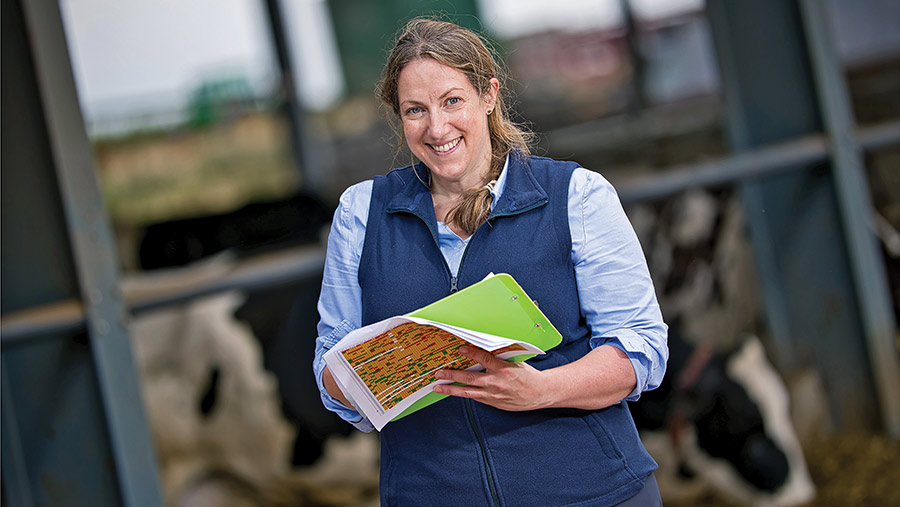
Sara Pedersen © Richard Stanton
Farm facts
- Russell Morgan, Graig Olway, Llangeview, Usk, Gwent
- 250ha farm with 230 milking Holstein herd
- Cropping: grass, 48ha of winter wheat and 48ha of maize
- Average milk yield 11,500 litres/year through five robots
Sara Pedersen has helped one South Wales dairy farmer save £60,000 over three years and gain a lucrative milk contract by drastically reducing herd lameness.
As a veterinary consultant specialising in cow mobility, Sara introduced mobility scoring every two weeks to cut the incidence of lameness in Russell Morgan’s 230-strong Holstein milking herd, from 45% to just 8%.
The scoring regime led to regular visits from a skilled foot-trimmer which helped reduce the three main causes of lameness – bacterial digital dermatitis, sole ulcers and white line problems from poor cow movement.
The reduced instances of lameness allowed Russell to sign up for a milk supply contract with retailer M&S, adding an extra £8,000/month to his milk cheque.
“One of the biggest problems for dairy farmers is that one in three cows is lame, and there is a great temptation to underestimate the problem,” says Sara.
Technical knowledge
Sara become interested in the lameness problem after leaving vet school having never trimmed a cow’s foot.
She was determined to highlight this as a vital issue in dairy herds, along with nutrition and fertility.
She set up Farm Dynamics in 2014 from her base in Cowbridge.
“It’s no good farmers getting their grazing right and their parlours right if the cows don’t want to walk,” she says.
Sara started working with Russell’s farm in 2018.
A three-year strategy was implemented in 2020, with the aim of improving cow comfort, foot-trimming and ventilation.
Since then, foot problems from digital dermatitis and sole ulcers have reduced.
“Some 30% of the cows had sole ulcers when we started, and there was only one case last year.”
Sara is about to complete her PhD at Nottingham University involving the largest such study in the world – looking at the need for foot treatment for young heifers before entering the milking herd.
She is also helping to train other vets in footcare and lameness.
Environmental credentials
The benefits of improved mobility in the herd also help the environment, as more efficient milk production and lower culling rates can help lower overall carbon emissions.
“By improving lameness, we are improving productivity, and so producing more milk from the same number of cows,” says Sara.
After a heavy period of culling to get on top of lameness, Russell believes his younger, healthier herd will lead to lactation numbers increasing to five or six.
Reducing the number of replacement heifers entering the herd will also help cut carbon emissions as these heifers are unproductive until they start milking.
Client relationship
With a healthier, more mobile herd, Russell is now looking to increase his Holstein herd from 230 milking cows to 300-350.
And with lameness under control, it will allow him to put more of a focus on genetics to improve productivity.
“We would not have got the M&S contract in February 2001 without Sara’s help.
She has also been helping with ideas about housing and general herd health,” says Russell.
The focus on nutrition, fertility and lameness has seen milk yields from the robot-milked herd rise by 3,500 litres over three years to 11,500 litres, with most of the improvement coming from nutrition.
The farm has been using robots for five years and has joined the 38 farms that supply milk to M&S.
The cows graze outside for a set number of days a year to meet the retailer’s requirements.
What the judges say…
Sara is a dynamic vet who takes a holistic view, working closely with her clients to solve the root causes of lameness, as well as undertaking on-farm research to educate farmers, foot-trimmers and other vets on best practice.
Sara Pedersen’s summary
The numbers
- 18 years working as a vet
- 9 years since setting up her business Farm Dynamics
- 50 farmer clients in the UK and Ireland
- 8% lameness in Russell’s herd in December 2022
The judges liked
- Actively involves all farm business stakeholders conversations and management strategies to reduce lameness in cattle
- Sensitive to the social and economic needs of the farmer and family when monitoring and developing action plans
- Invested heavily in developing new techniques with a research-led approach, involving other vets, and training the next generation of vets in foot health
Livestock Adviser of the Year 2023 is sponsored by Dyneval
Sponsor’s message
“Dyneval, the expert’s choice for semen quality analysis, is delighted to see how livestock advisers empower farmers with data-driven decisions and a proactive approach to improving the dairy industry.
Fabiana Graff, marketing manager, Dyneval

